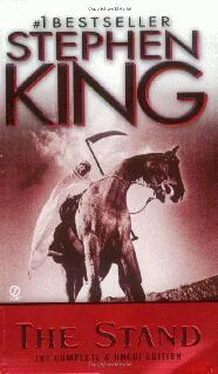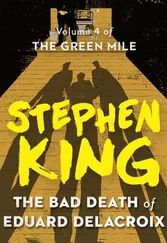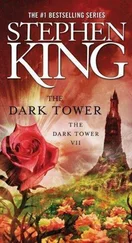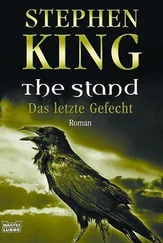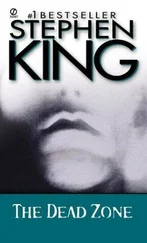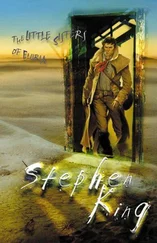He walked rapidly, rundown bootheels clocking against the paved surface of the road, and if car lights showed on the horizon he faded back and back, down over the soft shoulder to the high grass where the night bugs made their homes… and the car would pass him, the driver perhaps feeling a slight chill as if he had driven through an air pocket, his sleeping wife and children stirring uneasily, as if all had been touched with a bad dream at the same instant.
He walked south, south on US 51, the worn heels of his sharp-toed cowboy boots clocking on the pavement; a tall man of no age in faded, pegged jeans and a denim jacket. His pockets were stuffed with fifty different kinds of conflicting literature—pamphlets for all seasons, rhetoric for all reasons. When this man handed you a tract you took it no matter what the subject: the dangers of atomic power plants, the role played by the International Jewish Cartel in the overthrow of friendly governments, the CIA-Contra-cocaine connection, the farm workers’ unions, the Jehovah’s Witnesses ( If You Can Answer These Ten Questions “Yes,” You Have Been SAVED! ), the Blacks for Militant Equality, the Kode of the Klan. He had them all, and more, too. There was a button on each breast of his denim jacket. On the right, a yellow smile-face. On the left, a pig wearing a policeman’s cap. The legend was written beneath in red letters which dripped to simulate blood: HOW’S YOUR PORK?
He moved on, not pausing, not slowing, but alive to the night. His eyes seemed almost frantic with the night’s possibilities. There was a Boy Scout knapsack on his back, old and battered. There was a dark hilarity in his face, and perhaps in his heart, too, you would think—and you would be right. It was the face of a hatefully happy man, a face that radiated a horrible handsome warmth, a face to make waterglasses shatter in the hands of tired truck-stop waitresses, to make small children crash their trikes into board fences and then run wailing to their mommies with stake-shaped splinters sticking out of their knees. It was a face guaranteed to make barroom arguments over batting averages turn bloody.
He moved on south, somewhere on US 51 between Grasmere and Riddle, now closer to Nevada. Soon he would camp and sleep the day away, waking up as evening drew on. He would read as his supper cooked over a small, smokeless campfire, it didn’t matter what: words from some battered and coverless paperback porno novel, or maybe Mein Kampf , or an R. Crumb comic book, or one of the baying reactionary position papers from the America Firsters or the Sons of the Patriots. When it came to the printed word, Flagg was an equal opportunity reader.
After supper he would commence walking again, walking south on this excellent two-lane highway cutting through this godforsaken wilderness, watching and smelling and listening as the climate grew more arid, strangling everything down to sagebrush and tumbleweed, watching as the mountains began to poke out of the earth like dinosaur spines. By dawn tomorrow or the day after that he would pass into Nevada, striking Owyhee first and then Mountain City, and in Mountain City there was a man named Christopher Bradenton who would see that he had a clean car and some clean papers and then the country would come alive in all its glorious possibilities, a body politic with its network of roads embedded in its skin like marvelous capillaries, ready to take him, the dark speck of foreign matter, anywhere or everywhere—heart, liver, lights, brain. He was a clot looking for a place to happen, a splinter of bone hunting a soft organ to puncture, a lonely lunatic cell looking for a mate—they would set up housekeeping and raise themselves a cozy little malignant tumor.
He hammered along, arms swinging by his sides. He was known, well known, along the highways in hiding that are traveled by the poor and the mad, by the professional revolutionaries and by those who have been taught to hate so well that their hate shows on their faces like harelips and they are unwanted except by others like them, who welcome them to cheap rooms with slogans and posters on the walls, to basements where lengths of sawed-off pipe are held in padded vises while they are stuffed with high explosives, to back rooms where lunatic plans are laid: to kill a Cabinet member, to kidnap the child of a visiting dignitary, or to break into a boardroom meeting of Standard Oil with grenades and machine guns and murder in the name of the people. He was known there, and even the maddest of them could only gaze upon his dark and grinning face at an oblique angle. The women he took to bed with him, even if they reduced intercourse to something as casual as getting a snack from the refrigerator, accepted him with a stiffening of the body, a turning away of countenance. They took him the way they might take a ram with golden eyes or a black dog—and when it was done they were cold , so cold , it seemed impossible they could ever be warm again. When he walked into a meeting the hysterical babble ceased—the backbiting, recriminations, accusations, the ideological rhetoric. For a moment there would be dead silence and they would start to turn to him and then turn away, as if he had come to them with some old and terrible engine of destruction cradled in his arms, something a thousand times worse than the plastic explosive made in the basement labs of renegade chemistry students or the black market arms obtained from some greedy army post supply sergeant. It seemed that he had come to them with a device gone rusty with blood and packed for centuries in the Cosmoline of screams but now ready again, carried to their meeting like some infernal gift, a birthday cake with nitroglycerine candles. And when the talk began again it would be rational and disciplined—as rational and disciplined as madmen can make it—and things would be agreed upon.
He rocked along, his feet easy in the boots, which were comfortably sprung in all the right places. His feet and these boots were old lovers. Christopher Bradenton in Mountain City knew him as Richard Fry. Bradenton was a conductor on one of the underground railway systems by which fugitives moved. Half a dozen different organizations, from the Weathermen to the Guevara Brigade, saw that Bradenton had money. He was a poet who sometimes taught Free University classes or traveled in the western states of Utah, Nevada, and Arizona, speaking to high school English classes, stunning middle-class boys and girls (he hoped) with the news that poetry was alive—narcoleptic, to be sure, but still possessed of a certain hideous vitality. He was in his late fifties now, but Bradenton had been dismissed from one California college twenty-some years ago for getting too chummy with the SDS. He had been busted in The Great Chicago Pig Convention of 1968, formed his ties to one radical group after another, first embracing the craziness of these groups, then being swallowed whole.
The dark man walked and smiled. Bradenton represented just one end of one conduit, and there were thousands of them—the pipes the crazies moved through, carrying their books and bombs. The pipes were interconnected, the signposts disguised but readable to the initiate. In New York he was known as Robert Franq, and his claim that he was a black man had never been disputed, although his skin was very light. He and a black veteran of Nam—the black had more than enough hate to make up for his missing left leg—had offed six cops in New York and New Jersey. In Georgia he was Ramsey Forrest, a distant descendant of Nathan Bedford Forrest, and in his white sheet he had participated in two rapes, a castration, and the burning of a nigger shanty town. But that had been long ago, in the early sixties, during the first civil rights surge. He sometimes thought that he might have been born in that strife. He certainly could not remember much that had happened to him before that, except that he came originally from Nebraska and that he had once attended high school classes with a red-haired, bandy-legged boy named Charles Starkweather. He remembered the civil rights marches of 1960 and 1961 better—the beatings, the night rides, the churches that had exploded as if some miracle inside them had grown too large to be contained. He remembered drifting down to New Orleans in 1962, and meeting a demented young man who was handing out tracts urging America to leave Cuba alone. That man had been a certain Mr. Oswald, and he had taken some of Oswald’s tracts and he still had a couple, very old and crumpled, in one of his many pockets. He had sat on a hundred different Committees of Responsibility. He had walked in demonstrations against the same dozen companies on a hundred different college campuses. He wrote the questions that most discomfited those in power when they came to lecture, but he never asked the questions himself; those power merchants might have seen his grinning, burning face as some cause for alarm and fled from the podium. Likewise he never spoke at rallies because the microphones would scream with hysterical feedback and circuits would blow. But he had written speeches for those who did speak, and on several occasions those speeches had ended in riots, overturned cars, student strike votes, and violent demonstrations. For a while in the early seventies he had been acquainted with a man named Donald DeFreeze, and had suggested that DeFreeze take the name Cinque. He had helped lay plans that resulted in the kidnapping of an heiress, and it had been he who suggested that the heiress be made crazy instead of simply ransomed. He had left the small Los Angeles house where DeFreeze and the others had fried not twenty minutes before the police moved in; he slunk away up the street, his bulging and dusty boots clocking on the pavement, a fiery grin on his face that made mothers grab up their children and pull them into the house, a grin that made pregnant women feel premature labor pains. And later, when a few tattered remnants of the group were swept up, all they knew was there had been someone else associated with the group, maybe someone important, maybe a hanger-on, a man of no age, a man called the Walkin Dude, or sometimes the Boogeyman.
Читать дальше
